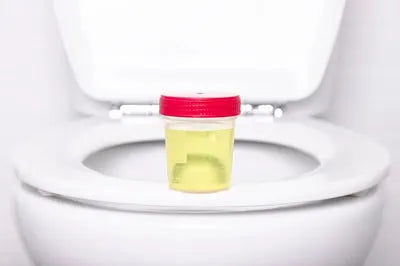What is a urinary tract infection?
Your urinary tract has two kidneys, two ureters, a bladder, and a urethra. These organs work together to discard the liquid waste from your body. A Urinary Tract Infection or a UTI is an infection which spreads in any of these parts of the urinary tract.
If you’re a woman, chances are that you might suffer from a UTI at least once in your lifetime. If you aren’t as lucky, you might keep getting the same kind of infection several times, sometimes for years. About 1 in 2 women are likely to get UTIs in their lifetime. The chances of men getting a UTI are significantly lower, with 1 in 10 men.
What happens if a UTI goes untreated?
You might experience the following untreated UTI symptoms:
-
Feeling a burning sensation when you pee
-
Feeling an intense and frequent desire to pee, even though nothing comes out when you do
-
Pee that looks cloudy, dark, bloody, or smells strange
-
Feeling tired
-
Feeling pain or pressure in your back or abdomen
-
Fever or chills (a sign that the infection might has become too dangerous)
Can a UTI go away on its own?
How long does a UTI last untreated? Most UTIs are caused by bacteria, but some might be caused by fungi and, very rarely, by viruses. UTIs are generally treated with anti-biotics. Research suggests that most untreated urinary tract infections can go away on their own. In fact, more than 40% of uncomplicated UTIs can go away on their own.
Is an untreated UTI dangerous?
There are risks to leaving UTIs untreated. An infection that has spread to your bladder or urethra, the lower parts of the urinary system might go away on their own. Or… it might become more serious and spread to your kidneys and ureters, the upper parts of the urinary system.
What can happen when a UTI is untreated?
A UTI left untreated can lead to:
Sepsis
Untreated UTI can lead to a sepsis. Sepsis is a systemic inflammatory response to an infection. It can lead to multi-organ dysfunction, failure, and sometimes even death. The sepsis caused by the infections of the urinary tract are called as urosepsis. Having a severe urosepsis makes you more prone to infections in the future.
Pyelonephritis
Pyelonephritis is a type of urinary tract infection (UTI) that generally begins in your urethra or bladder and spreads to one or both of your kidneys. It is a potentially life- threatening condition, which needs immediate medical attention. Symptoms of pyelonephritis include vomiting, hematuria and nausea, fever and chills.
Kidney scarring
If not treated on time, a UTI can lead to renal scarring. Renal or kidney scarring cannot be reversed once it happens. It leads to kidney malfunctions, kidney infections and overall health problems.
How long can you wait to get treated for a UTI?
It’s very hard to predict when a treatment is not needed for a UTI. You can wait for 2-3 days to see if your symptoms clear up on their own. Untreated UTI for 1 month is too long a time to wait to see a doctor. Or advise to you would be to consult a doctor as soon as you notice things that are unusual for you. Waiting to see if a UTI will go away on its own might not be the best idea.
















